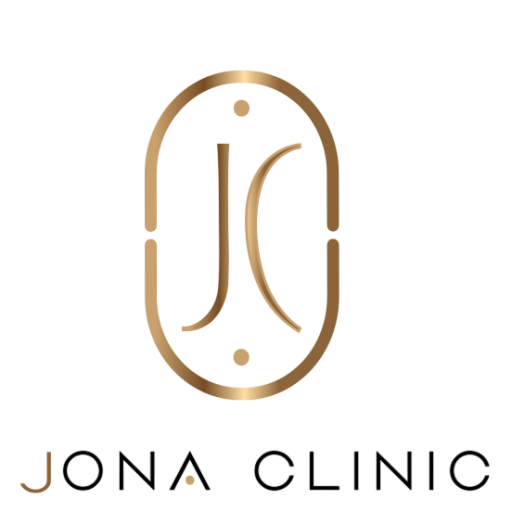Periodontology
Advanced treatments for the health of gums and tooth-supporting tissues.
Periodontology is the branch of dentistry that deals with the prevention, diagnosis and treatment of gum diseases and the bone supporting the teeth. Periodontal diseases, if not treated in time, can lead to tooth mobility and loss, affecting not only oral health, but also general well-being. In our clinic, we offer modern and minimally invasive solutions to combat gingivitis, periodontitis and the regeneration of affected tissues.
Why choose our clinic for periodontal treatments?
✅ Periodontics specialists with extensive experience
✅ Advanced technologies
✅ Complete prevention and maintenance protocol
✅ Holistic approach to oral health
✅ Painless treatments
If you have symptoms of periodontal disease, don't wait for the problem to progress.
Schedule a consultation now and benefit from advanced treatments to save your teeth!

Periodontology
treatments advance for health gum and A tissue of support A teeth.
Periodontology is branch dentistry which busy with prevention, dIAGNOSIS and treatment conditions GUM and of BONE of support A Toothpaste. Diseases Periodontitis, untreated TO time, can lead to mobility and loss Toothpaste, affecting not only health oral, but and state generous good. In CLINIC our, we offer solutions Modern and minimum invasion for FIGHT gingivitis, periodontitis and regeneration TISSUE affected.
Of What saddle choose CLINIC our for TREATMENT Periodontitis?
✅ specialist in periodontology with experience WIDE
✅ TECHNOLOGY advance
✅ Protocol complete of prevention and SUPPORT
✅ Approach HOLISTIC A health oral
✅ treatments without pain
If you the symptoms of a disease Periodontitis, no wait that problem saddle advance.
Schedule now a consultation and RECEIVING of TREATMENTS advance for to-AND save teeth!

Signs of periodontal disease – When should you see a doctor?
✔ Bleeding gums when brushing or chewing
✔ Gingival retraction – gradual exposure of tooth roots
✔ Bad breath (halitosis)
✔ Gingival inflammation and redness
✔ Dental mobility – the sensation that teeth are “moving”
✔ Massive deposits of tartar and bacterial plaque
Causes of periodontal diseases:
If plaque is not removed by regular brushing and flossing, it turns into tartar, a hard layer that can only be removed by a dentist. Toxins produced by the bacteria irritate and inflame the gums, triggering an immune system response that can lead to the destruction of the tissues and bone that support the teeth.
- Poor oral hygiene
- Smoking
- Genetic factors
- Diabetes
- Hormonal changes
- Stress
The lack of a proper oral care routine increases the risk of plaque formation and, implicitly, gum disease.
Smoking is a major risk factor for periodontal disease because it affects the body's ability to fight infections.
Some people are more prone to periodontal disease due to genetic predisposition.
Poorly controlled diabetes increases the risk of developing infections, including periodontal disease.
Hormonal fluctuations during pregnancy, menopause, or puberty can make gums more sensitive and vulnerable to inflammation.
Stress affects the body's ability to fight infections, including gum infections.
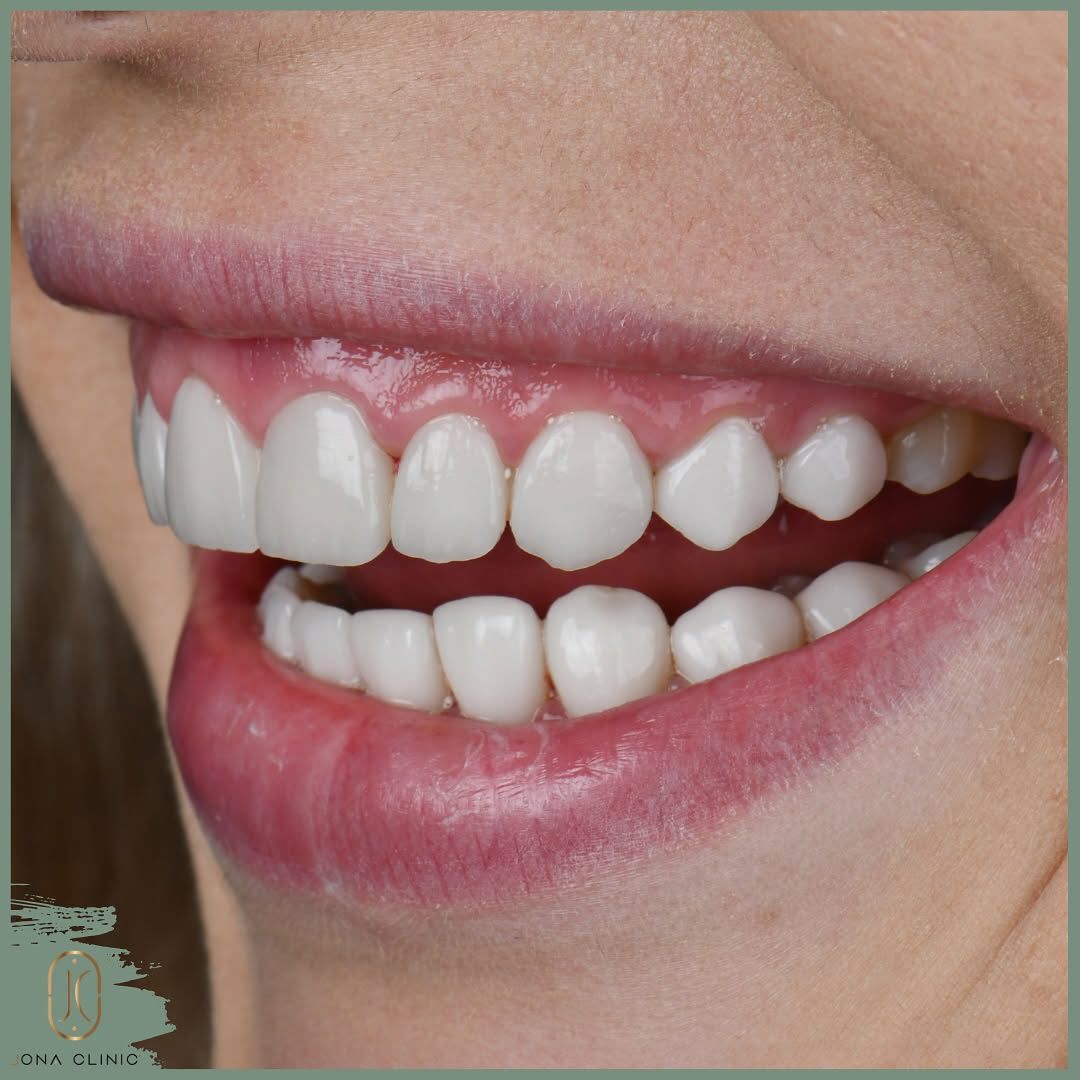
Healthy gums are the foundation of a strong smile!
If you have symptoms of periodontal disease, don't wait for the problem to progress. Schedule a consultation now and benefit from advanced treatments to save your teeth!
Periodontal treatments performed in our clinic
1. Minimally invasive treatments for incipient periodontal diseases:
Ultrasonic scaling and AirFlow – Effective removal of tartar and bacterial plaque, preventing the development of gingivitis.
Closed-field gingival curettage – Deep cleaning of periodontal pockets without surgery.
Laser treatment for gingivitis and periodontitis – Modern, minimally invasive method that reduces inflammation and accelerates healing.
Antibacterial and anti-inflammatory therapy – Personalized solutions to eliminate bacteria that cause periodontal disease.
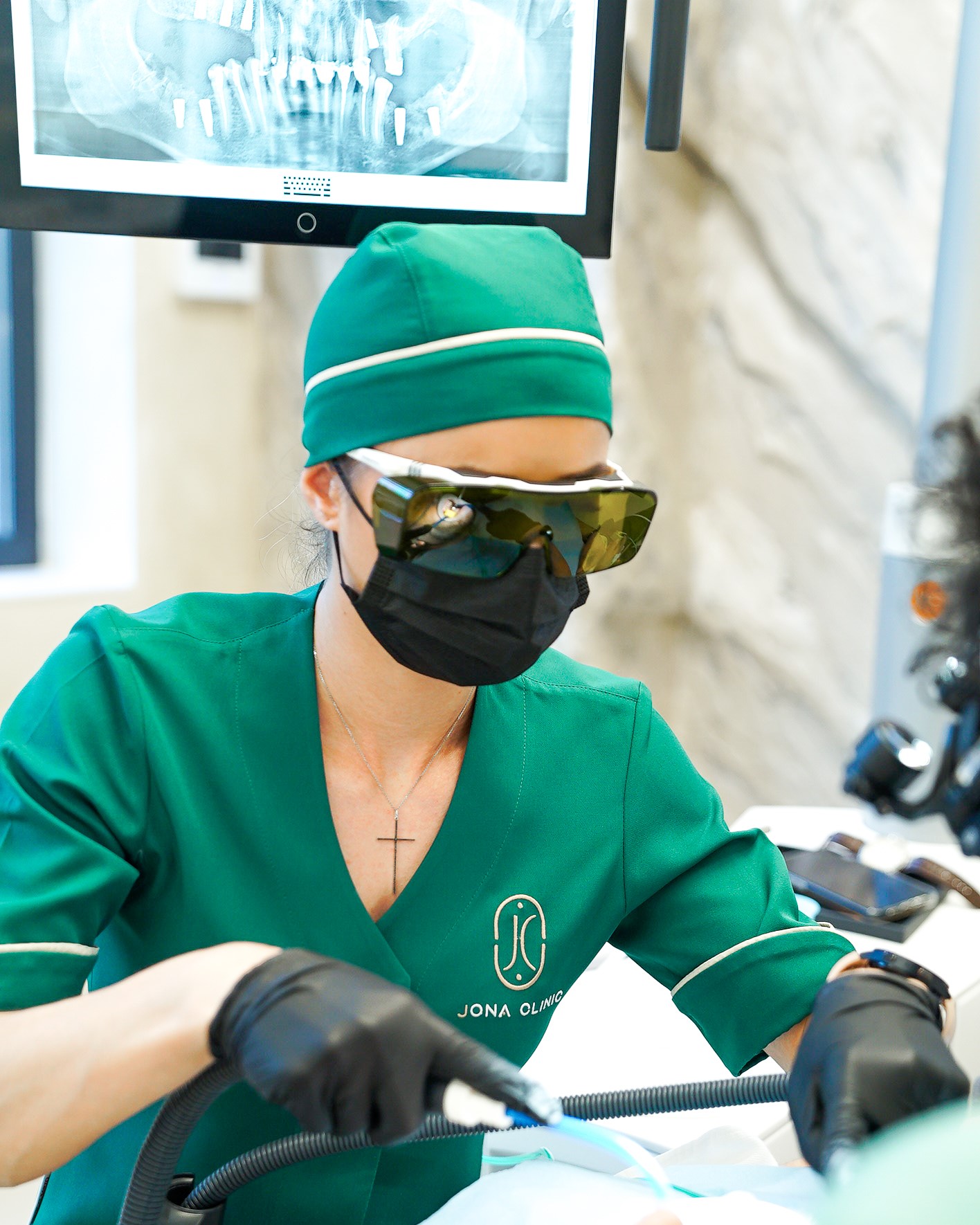
Stages of periodontal treatment
- Initial consultation and periodontal evaluation
- Deep cleaning: Scaling and curettage
- Laser therapy or local antibiotic
- Periodontal surgeries
The first stage consists of a detailed consultation, in which the periodontist assesses the general condition of the gums and teeth. This involves clinical examination, measuring periodontal pockets, and taking dental x-rays or 3D scans to assess the condition of the bone and tissues is essential.
For patients with gingivitis or early periodontitis, the basic treatment consists of professional scaling and curettage to remove plaque and tartar accumulated below the gum line. This is a minimally invasive procedure that reduces inflammation and allows the gum tissues to heal.
In cases where there is more severe inflammation, the doctor may recommend laser therapy to clean out periodontal pockets and stimulate gum regeneration. Topical antibiotics may also be used to combat persistent bacterial infections.
For advanced cases of periodontitis, periodontal surgery may be necessary to reduce the depth of the pockets and restore gum and bone health. These interventions may include soft tissue or bone grafts, as well as guided tissue regeneration techniques.
2. Advanced treatments for periodontitis and bone regeneration:
Open field gingival curettage – Deep cleaning of advanced periodontal pockets to stop the destruction of supporting tissues.
Gingival grafts – Interventions to cover exposed roots and protect them.
Guided Bone Regeneration (GBR) – Procedure that stimulates the restoration of bone lost due to periodontal disease.
3. Periodontal maintenance and prevention therapy:
Personalized prophylaxis programs for patients with a history of periodontal disease.
Periodic monitoring of gum health – Periodic assessments to prevent relapse.
Personalized home oral care tips – Training for the correct use of interdental brushes, dental floss and special mouthwash for periodontitis.
The importance of prevention in periodontology
- Proper oral hygiene
- Regular dental checkups
- Professional scaling and brushing
- Healthy diet
- Avoiding smoking
- Managing other health conditions
Proper brushing and flossing daily are essential for removing the plaque that forms daily on the surface of the teeth and in the interdental spaces. Brushing should be done at least twice a day, for at least two minutes, using a fluoride toothpaste and an appropriate toothbrush.
Regular visits to the dentist, at least twice a year, are essential to assess the health of your gums and teeth. Your dentist can identify periodontal disease in its early stages and recommend preventive treatments, such as scaling and root planing.
Scaling by a dentist or dental hygienist helps remove plaque and tartar that cannot be removed by brushing at home. This procedure reduces the risk of gum inflammation and prevents the formation of periodontal pockets. In addition, professional brushing ensures a deep clean and the removal of tooth stains.
A balanced diet, rich in vitamins and minerals, contributes to healthy gums and teeth. Vitamin C, for example, is essential for healthy connective tissues, and foods rich in calcium help maintain strong bones and teeth.
Smoking is one of the main risk factors for periodontal disease. It affects blood circulation to the gums and makes it harder to fight off infections. Quitting smoking significantly improves gum health and can prevent the progression of periodontal disease.
Conditions like diabetes, which affect the body's ability to fight infection, can increase the risk of periodontal disease. Proper management of these conditions, along with rigorous oral hygiene, helps prevent complications.
Modern technologies in periodontology
- The dental laser
- Digital technology and 3D radiographs
- Minimally invasive treatment
- Tissue grafts and bone regeneration
Laser is a revolutionary technology that offers a minimally invasive and effective treatment for periodontal diseases. With the help of the laser, infected tissues can be precisely removed, thus reducing the size of periodontal pockets and stimulating the regeneration of healthy tissues. Laser treatment is more comfortable for patients and ensures faster healing.
Digital radiographs and 3D scans allow us to assess the structure of teeth and bone in detail, so that we can accurately plan periodontal surgeries or bone regeneration treatments. These images provide a clear picture of the stage of the disease and help monitor the progress of treatment.
For early or moderate periodontal disease, we use minimally invasive techniques, such as laser curettage or guided topical antibiotic therapy, to treat infections without the need for extensive surgery. These treatments are more comfortable for patients and have a faster recovery period.
In severe cases of periodontitis, when the bone and gum tissues have been severely damaged, we can perform reconstructive surgeries, such as tissue grafts and guided bone regeneration. These procedures involve the use of biocompatible materials or tissues taken from other areas of the oral cavity to stimulate the natural regeneration of bone and gums.
Other services
Contact us anytime!
Make an appointment!
Schedule a visit by filling out the form below and we will contact you regarding the desired intervention.
Frequently asked questions
Find out more directly from us, full transparency.
Periodontitis is an inflammatory condition that affects the supporting tissues of the teeth. Common symptoms include bleeding and swollen gums, bad breath, and receding gums. If you notice these symptoms, it is important to consult a periodontist for a thorough evaluation.
Surgical treatment may include gum curettage, soft tissue grafts, or guided bone regeneration, depending on the severity of the condition. These procedures help reduce infection and restore gum health.
After treatment is complete, regular check-ups are essential to prevent disease recurrence. Generally, visits are recommended every 3–6 months, depending on the state of periodontal health.
Maintaining rigorous oral hygiene, regular check-ups with the dentist, and avoiding risk factors, such as smoking, are essential for preventing periodontal disease.
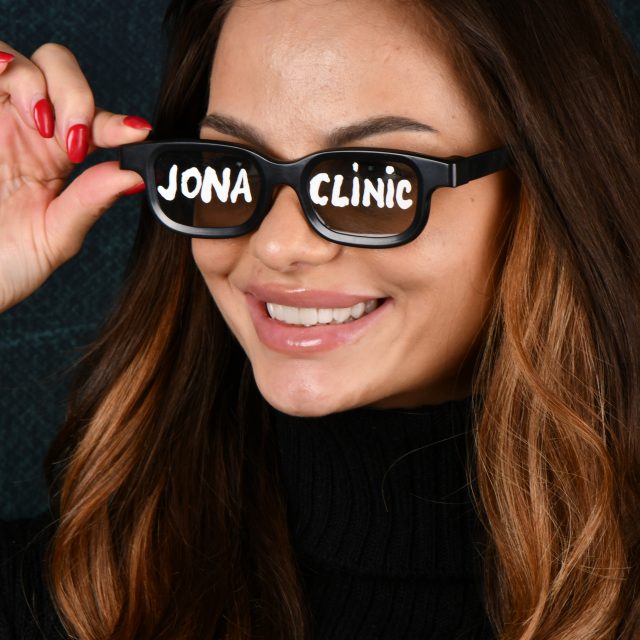
More services:
Jona Clinic offers you digital, safe and aesthetic dental solutions, made with state-of-the-art technology and a team of dedicated specialists.
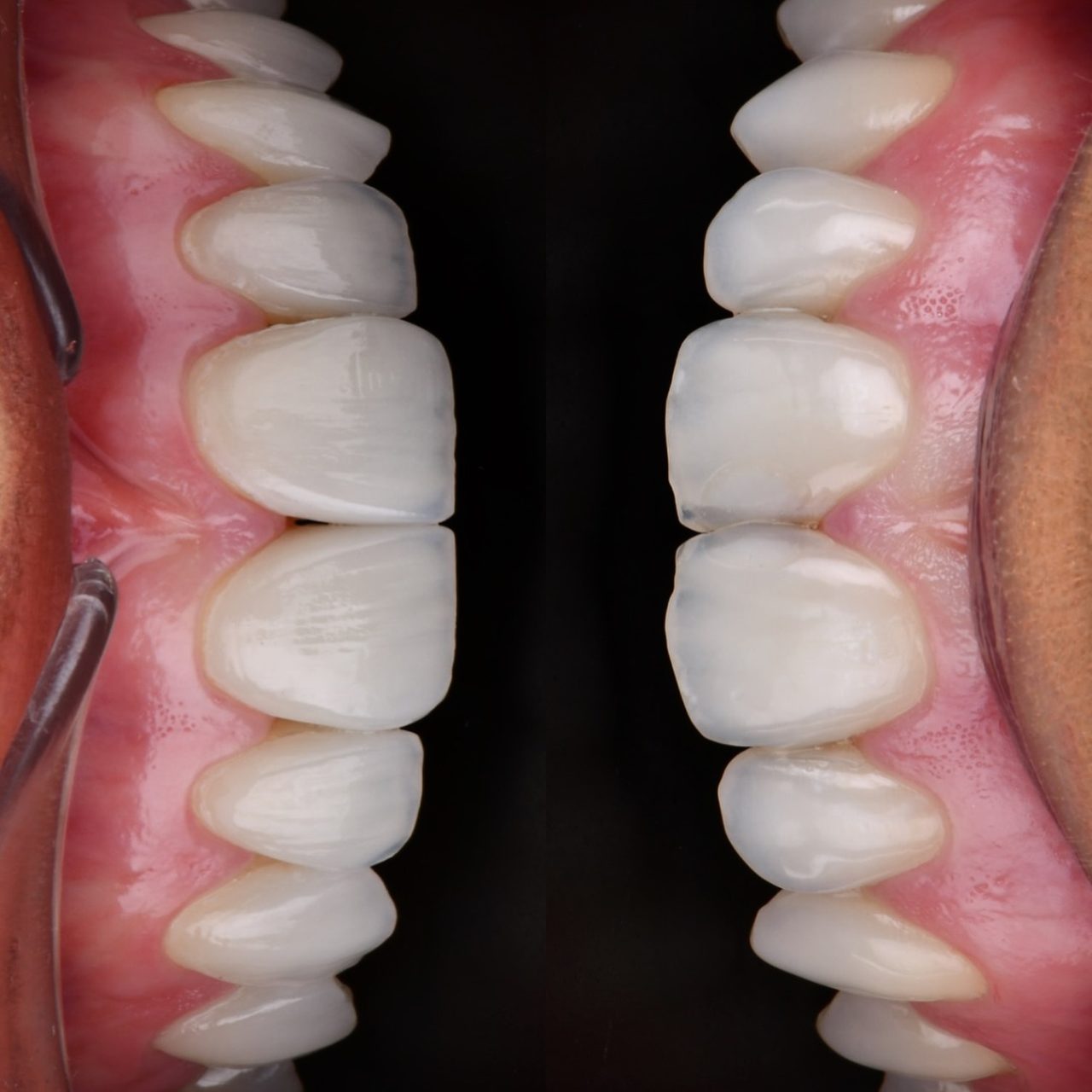
Dental aesthetics & Feldspathic veneers
Achieve a natural and harmonious smile with Emax or premium Feldspathic ceramic veneers, made digitally, without compromise.
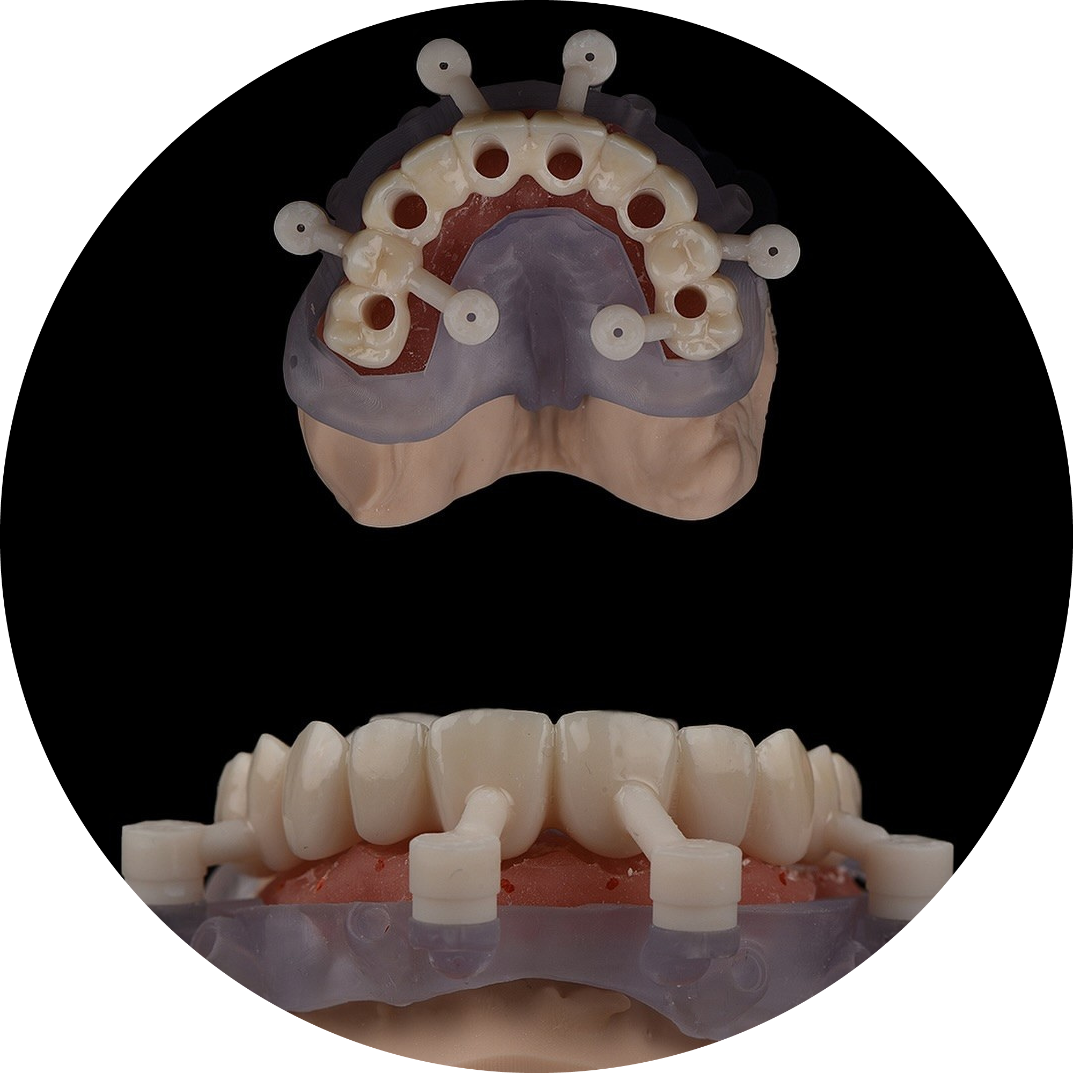
Dental implants with surgical guide
Complete rehabilitation with premium Straumann and Neodent implants, using digital guidance for maximum precision.

Pediatric dentistry
We treat young patients with care, patience, and modern, age-appropriate methods for a positive and fear-free experience at the dentist.
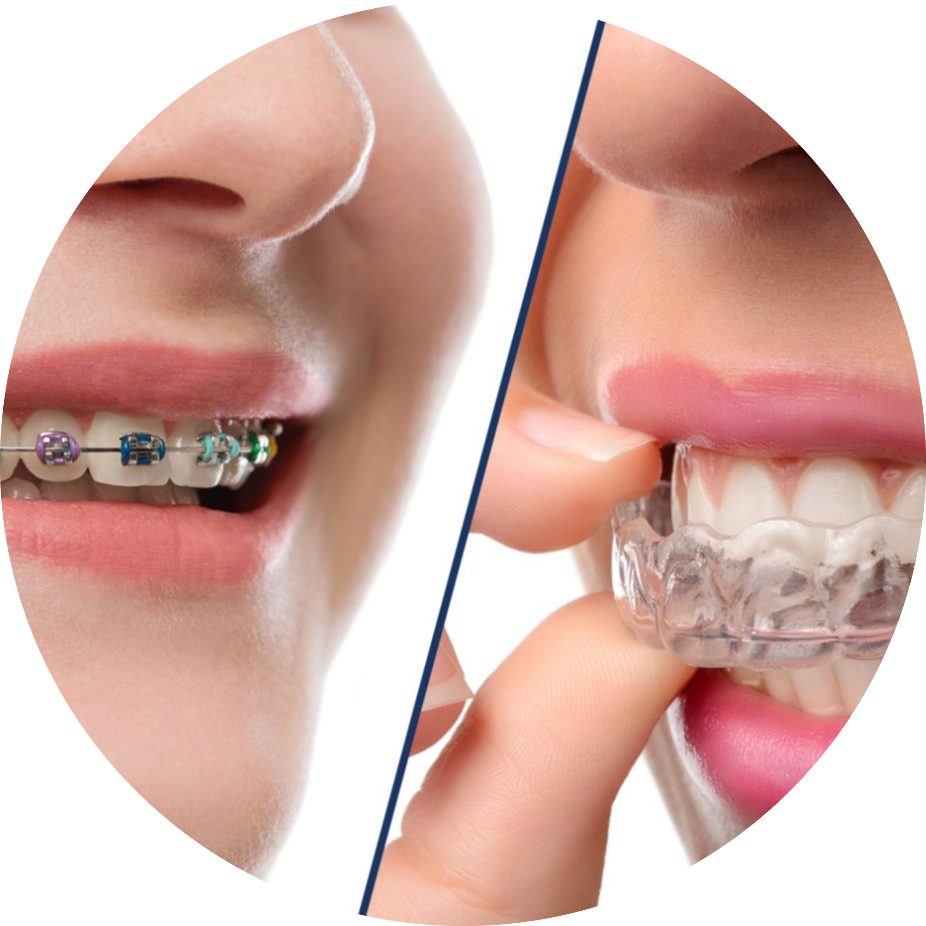
Orthodontics
We correct the alignment of teeth and bite with modern, discreet and effective appliances, for a harmonious, healthy and confident smile, regardless of age.
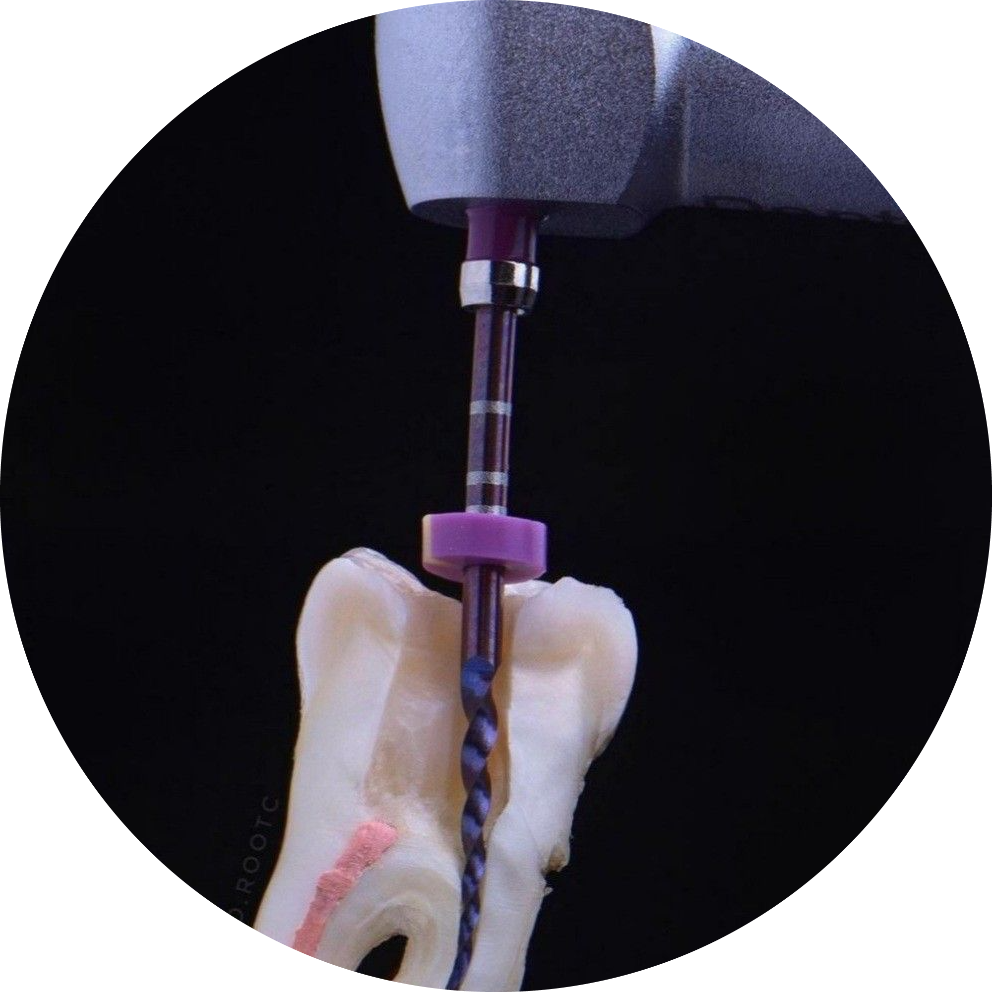
Endodontics
Root canal treatments performed with advanced technology for precision and predictable results. We preserve natural teeth with modern, minimally invasive solutions.
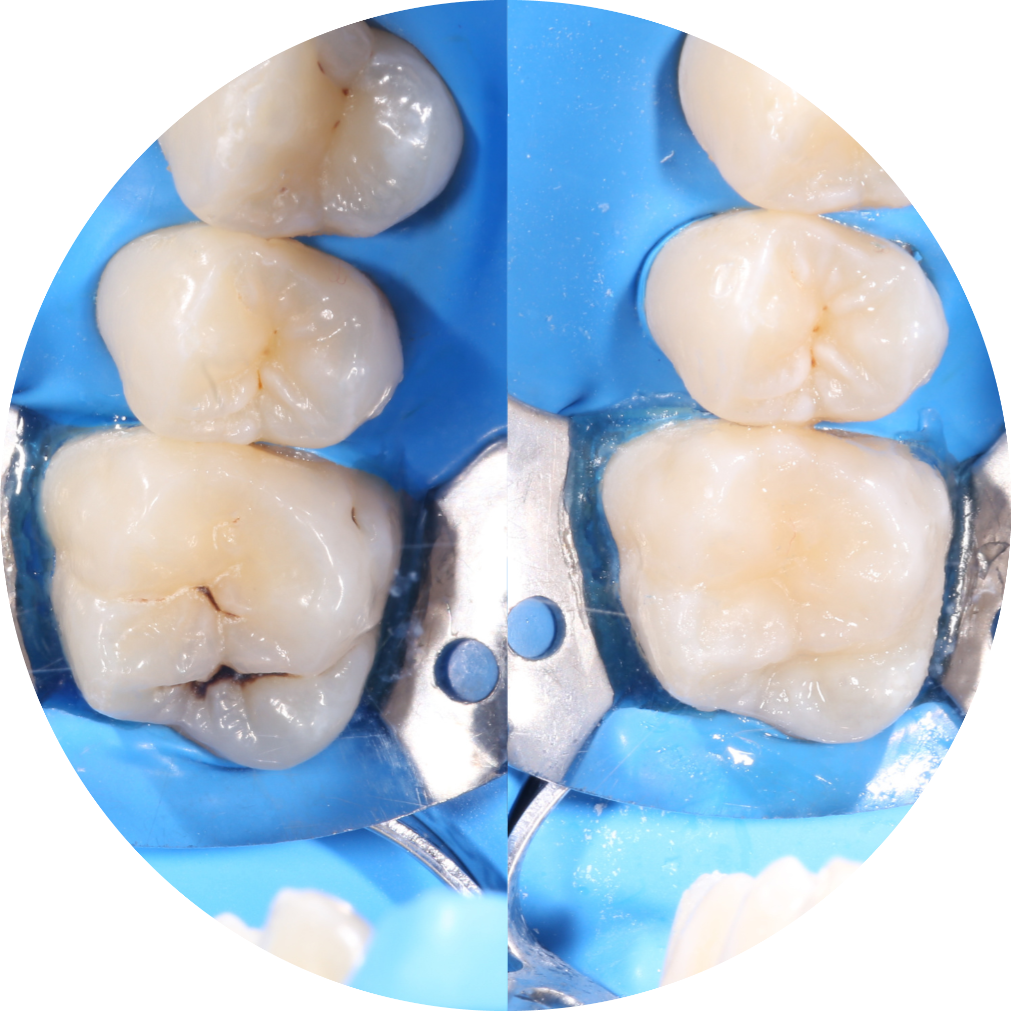
Dentistry
We reconstruct teeth affected by cavities with modern materials and advanced techniques, for functionality, aesthetics, and long-term comfort.
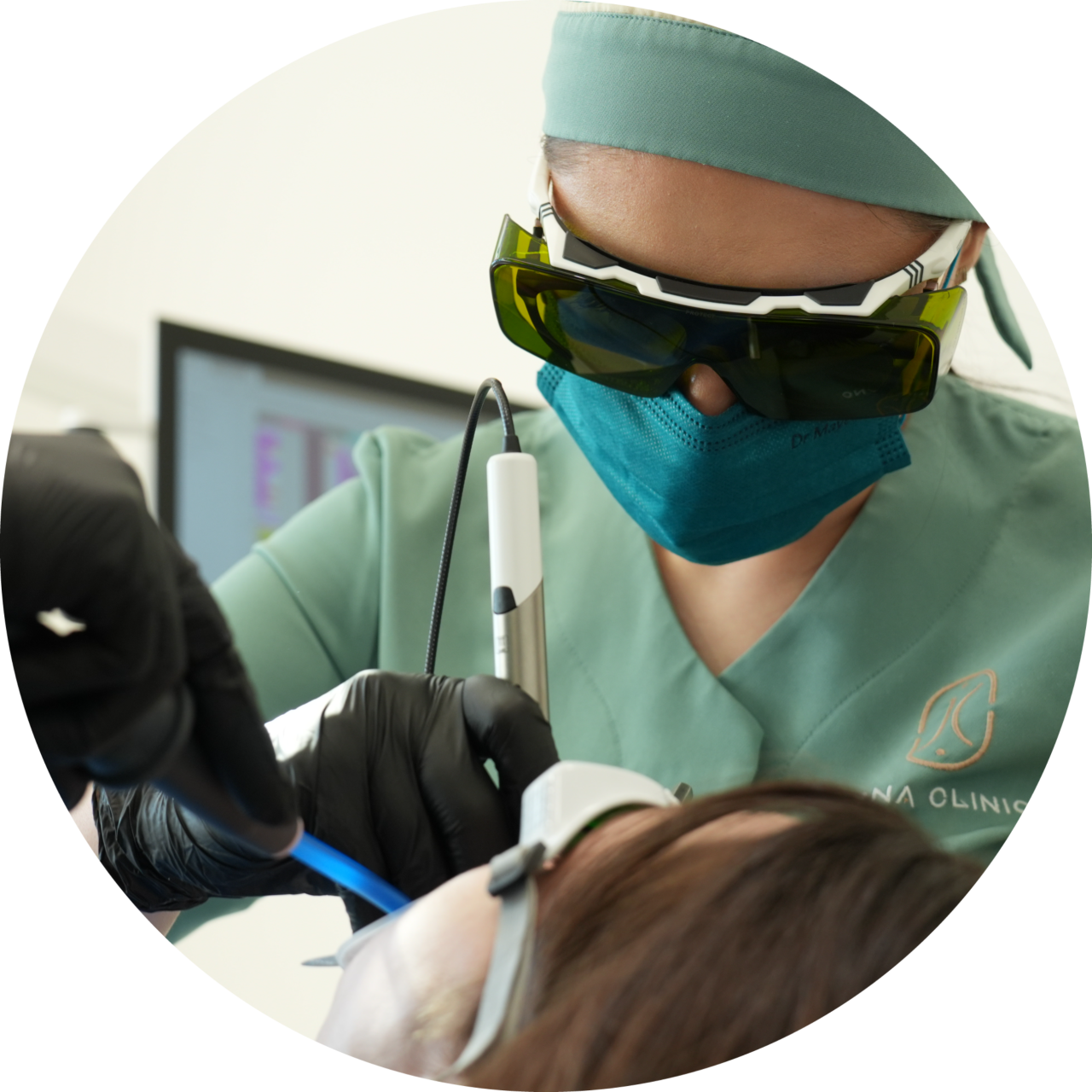
Periodontology
We prevent and treat gum diseases through personalized therapies, which contribute to oral health and the maintenance of natural teeth.
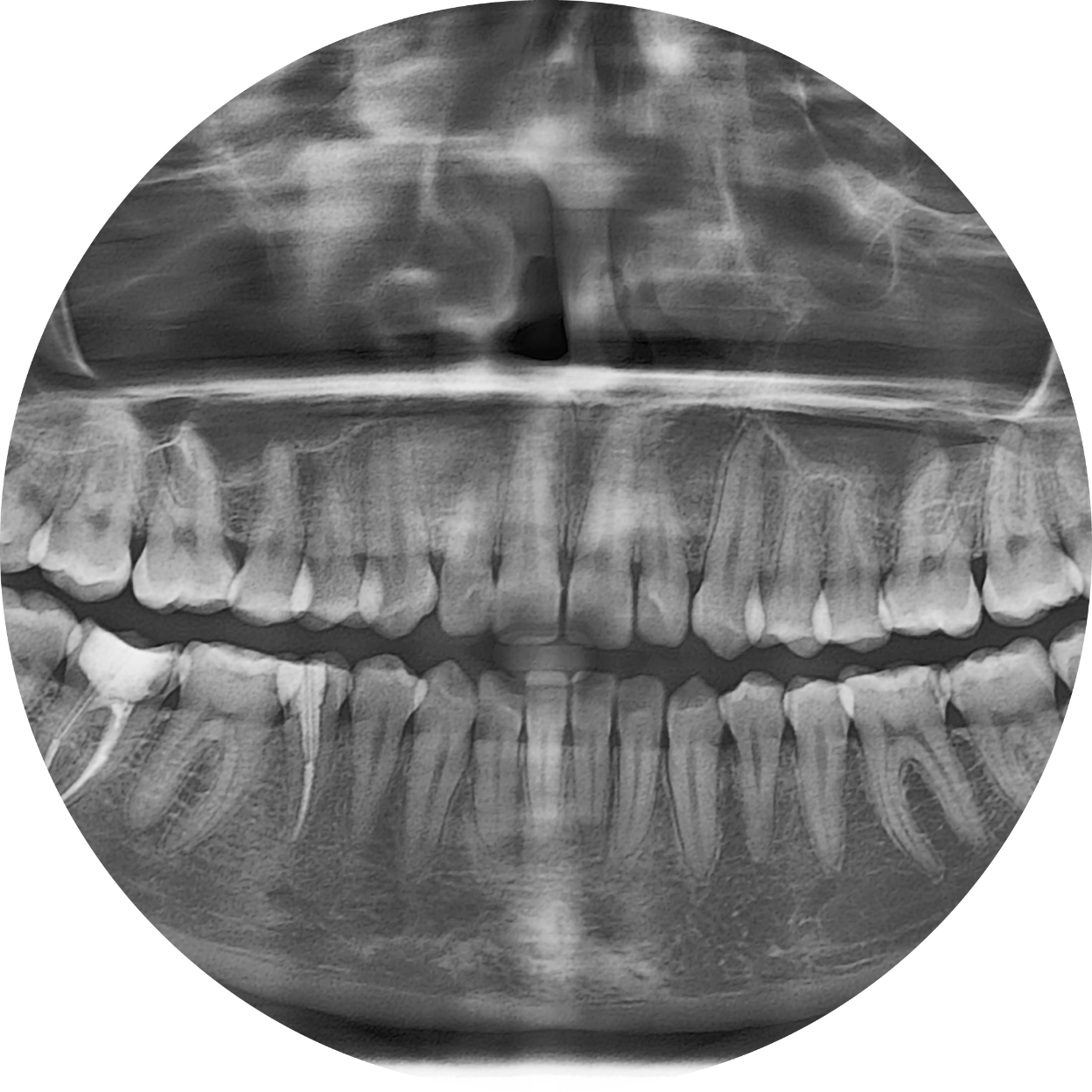
Dental radiography
Fast and accurate imaging investigations, with modern digital equipment, essential for correct diagnosis and effective treatment plans.




